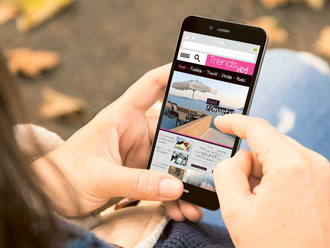
Dubai: Are visits to the doctor as important as it used to be?
Apparently not, according to the latest survey carried out by Pricewaterhouse Coopers (PwC) Middle East.
In PwC’s new report, ‘Care anywhere: moving health and wellness out of the hospital into the hands of the consumer’, participants said they would rather take advantage of developing technology, and use it to develop a healthcare system that caters to their needs.
The survey found that 67 per cent of respondents across the Middle East are willing to receive healthcare in a non-traditional setting – such as at home, over the phone or in a mobile unit – illustrating the willingness of residents to adopt new modes of healthcare.
Dr Tim Wilson, partner, PwC Middle East Health Industries Leader, said: “People in the Middle East are among the most tech-savvy in the world. This widespread and rapid adoption of technology is reducing hurdles to healthcare access, enabling care anywhere.”
If technology were available, 62 per cent of respondents said they would choose to have a live consultation with a specialist via their smartphone, while 50 per cent would opt to wirelessly check their pacemaker or defibrillator.
“In this new normal era of ‘lower for longer’ oil prices and pressure on revenues, governments and the private sector are re-evaluating how healthcare is provided now, and what it needs to be in the future to cater for an ever-increasing population. The Middle East has a unique opportunity to lead the world in developing consumer-led healthcare system for its citizens,” said Dr Wilson.
Non-traditional settings would also be a preferable option, as over half of respondents said they would rather receive treatment, blood test or face-to-face consultations in a retail unit or pharmacy. In addition, a further 40 per cent said they were open to the idea of receiving complex services, such as an MRI, ultrasound or X-rays carried out there too.
The survey also suggests behavioural changes, with people taking more responsibility for their own individual health and wellbeing, with 68 per cent of respondents having a health-related app on their smart device. The most widely used of these applications are those related to exercise, dieting and weight loss.
A move away from traditional consultations
In a survey carried out by PricewaterhouseCoopers (PwC) across the Middle East, it found that:
62 per cent: would choose to have a live consultation with a specialist via their smartphone
50 per cent: would opt to wirelessly check their pacemaker or defibrillator.
68 per cent: with a health-related app on their smart devices.
67 per cent: willing to receive healthcare in non-traditional settings, such as at home, over the phone or in a mobile unit.












